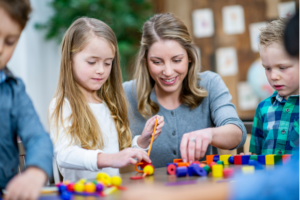Feature: Changing the perception of children in care

Jay Carroll, Operational Manager at FABRIC – an organisation that is making a positive difference to young people in care or leaving care – explains why we need to change the perception of children in care.
Kids in care are not there by choice. Mostly they haven’t ‘done anything’ that has resulted in them ending up in care, they are simply guilty of being born into a family that wasn’t able to care for them at that stage in their lives.
The perception is often that they’re one of ‘those’ kids in hoodies hanging around shop fronts, or kids that have been so badly behaved in their family homes that they have been forcibly removed by the authorities. This is far from the truth. For many kids moving into care can be moving to a place of safety.
Despite the adjectives that people who are unfamiliar with the care situation use to describe kids in care – difficult, disobedient, disruptive, for instance – in fact, some of the most wonderful people I have met in my life have been those kids in care.
A child’s early years are where they learn so many lessons in quick succession, and those lessons form who they will become later in life. Many things that happen to a child at a young age tend to remain with them – both happy and sad experiences. Most children learn from their parents, family members, their school teachers, and their peers. Children are allowed to make lots of mistakes, they will spend a lot of time working out how the world works and are often confused about where they fit in.
Stability usually comes from a supportive home and encouragement at school. But what happens when they feel that they can’t look to their parents, friends, or a schoolteacher for help. Children often arrive in care with their sense of safety and trust badly damaged. The reason they’re there is because their home life isn’t what most kids have or they’re being abused or bullied by the very people who should be giving them support. The child has been trying to deal with the challenges of this period of their life without a stable base.
Once in the care system, a child may experience multiple moves or homes (unfortunately known in the sector as placements). The only consistent person for a child in care is a social worker, who has of course had the child referred to them and who form part of their caseload. The implications of this are lifelong and damaging.
This background has a huge impact on every single child who experiences it. They are left believing that they will be let down and that people don’t stick around for long. You can imagine what that does for their mental health and wellbeing. It’s hardly surprising that many children respond to this situation by acting out or withdrawing.
The fallout
Psychological wounds from these experiences go deep and are difficult to heal. How would you feel if you never knew when you might be told to pack your bags and move to an unfamiliar location. Most adults wouldn’t cope, and yet that’s exactly what we expect of children who don’t have the emotional maturity to process all this hurt and loneliness and fear.
When you have had to explain who you are, your likes and dislikes and the things that you have experienced and the trauma you have suffered – to as many as 20 new homes – you almost certainly think it’s likely only a matter of time before you are answering the same questions to home number 21.
They become that self-fulfilling prophecy, and the person people tell them they are. Those kids who have been willing to share their feelings (which is massive for some) have confessed that from somewhere around home five they give up.
One of the kids who lived with us at a FABRIC home thought that their time at FABRIC was coming to an end. They referred to the cost of their home and how much social services paid FABRIC to care for them. I asked what they meant, as the figure we receive doesn’t (and wouldn’t ever) determine the amount of care we gave them. That child said that, in previous homes, they had been told that their behaviour wasn’t worth how much they were paid to care for him. It’s a sad situation when a child believes that they’re a financial commodity.
Change the perceptions
The statistics for mental health problems for children in care is damning, with over 45%* having some form of mental health issue, and that is without even taking into consideration the impact Covid-19 has had on everyone.
The mental health of every child in care is just as important as anyone else born into a privileged life.
What can be done to change these negative connotations around kids in care – and remember that they didn’t ask to be there. Many children are desperate for a stable and loving home, but after years of hurt and disappointment, they simply don’t believe they ‘deserve’ this.
Because they don’t know how to verbalise this they can become that youth hanging about on a street corner by default or they are angry with the world and take it out on anyone who gets within range, and really who can blame them, after such a difficult start.
What makes the difference? Kindness.
Treating kids in care with love and kindness and appreciating what they have been through is the first step to breaking this cycle. Giving them the respect and dignity they deserve will go a long way in boosting confidence and improving their mental health.
Kids in care should not be a statistic. They are all brilliant in their own way – if only we, as a society, would let them shine. That begins with our perception of what being ‘in care’ really means. How could you offer kindness to a child who needs to experience some positive support? How could you change the perceptions of others to see children in care as individuals who need a kind word and some genuine support?
Jay Carroll is the Operational Manager at FABRIC. FABRIC is an award-winning organisation that is making a positive difference to young people aged 16+ who are either in care or leaving care. FABRIC provides loving homes with trauma-informed support to young people aged 16+ who are Looked After Children, Care Leavers, Homeless young people, or Unaccompanied Asylum-Seeking Children. FABRIC supports their ‘FABRIC Kids’ as they make the biggest step of their life and transition towards independent living.
















